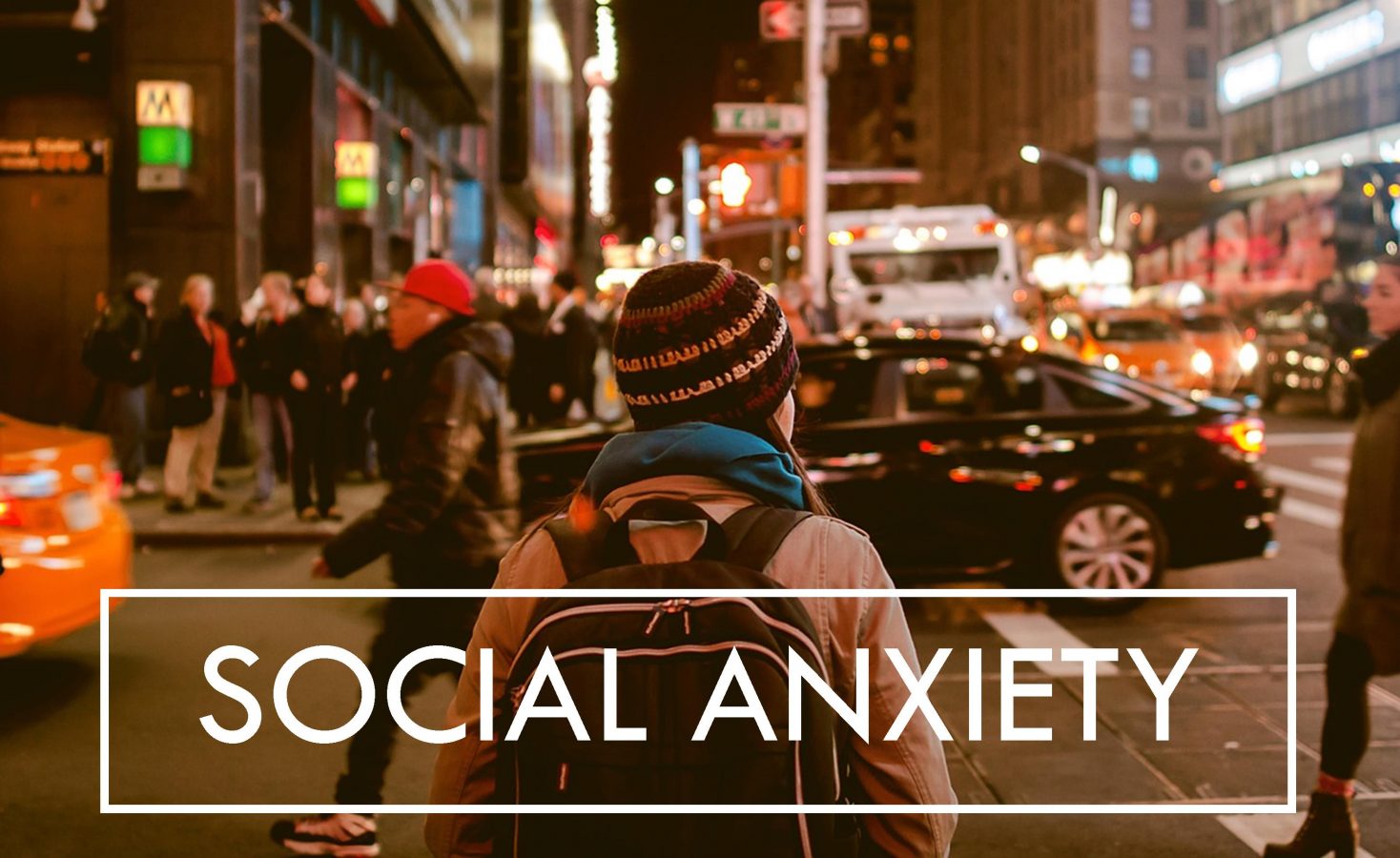Do you have Social Anxiety Disorder?
The signs, symptoms and treatment options for social phobia
- Do you feel sick when you enter a crowded room?
- Dread being approached for a chat in the workplace?
- Invent excuses to avoid social gatherings?
- If this sounds like you, it’s possible you have social anxiety disorder.
If you’re like most people, you probably feel nervous in social situations where you could be judged by others. For example, meeting your partner’s family for the first time or delivering a speech at a conference, is likely to cause anxiety in the lead up, and during the event.
However, for people with Social Anxiety Disorder (also known as Social Phobia), social interactions and performance situations can cause intense anxiety and fear of judgement. For example, having lunch with friends or making small talk with a stranger in a lift. This fear of social situations can have a severe impact on your relationships, career opportunities or finding a romantic partner.
1 in 10 Australians suffer from social anxiety disorder in their lifetime.
Common fears of social phobia
People with social anxiety have an intense fear of social situations or performing in front of others. These include:
- Having dinner with colleagues
- Placing an order at a café
- Attending a party
- Meeting new people
- Giving a speech
- Being observed doing an activity (eating, drinking, etc.)
- Answering the phone
- Being in a crowded room
- Going to the supermarket
- Using public toilets
- Speaking to someone you’re attracted to
- Dating
Often the fear, the anxiety and the avoidance of social situations impact daily life. Social anxiety can make you feel isolated, lonely, or depressed.
Signs of Social Anxiety Disorder
People with social phobia experience physical symptoms of anxiety, negative thought patterns and unhelpful behaviours to cope with social situations.
Physical symptoms:
You may experience these physical symptoms of anxiety in anticipation of, or during social interaction:
- Sweating
- Nausea/ dizziness
- Diarrhoea
- Trembling/ shaking
- Stammering or talking too fast
- Blushing
- Panic attacks
You may also feel overwhelmed when there are too many people around and find you ‘zone out’ or go blank. It’s not uncommon for people with social anxiety to feel exhausted due to the constant state of arousal in social situations.
Psychological symptoms
If you have social phobia, you may worry you will be humiliated, embarrassed, rejected by others, accidentally offend others or judged as dull, stupid or weak. You may have thoughts such as:
- Everyone can see how anxious I am
- Nobody likes me
- Everyone is staring at me
- No one cares what I have to say
- My opinion doesn’t matter
- People are watching me
Behavioural symptoms
As a result of the fear, you may do some things to avoid or adapt to the social situation. These may include:
- You hold back from conversation even when you have something to add
- You build your life around your family and don’t make new friends
- You intentionally avoid people you know when you see them in public
- You invent excuses not to go to social gatherings
- You won’t attend events alone
- You prefer virtual communication than face to face conversations
- When you do attend a social event, you hide away in the bathroom, or you play on your phone to avoid conversations
- When you do speak, you end up talking way too fast or stammering
If you experience a combination of these symptoms in social or performance situations, then you could have social anxiety disorder. You may also find you experience anxiety in other areas of our life, feel depressed or rely on drugs or alcohol to reduce your stress.
How is Social Anxiety Disorder treated?
The good news is that social phobia is a treatable condition.
There are some strategies you can try at home as well as professionals who can help you overcome your fear of social situations.
Coping with social anxiety
Breathing and relaxation strategies. Deep breathing exercises can help minimise the physical anxiety symptoms you experience in social situations.
Maintain a healthy lifestyle. Eat healthily, engage in regular physical activity and ensure you get plenty of rest and sleep.
In social situations, try to lead the conversation. Often people with social phobia dread being the centre of attention and being asked questions. Instead, you can ask the questions and be the listener. This can help you ease into conversations more naturally.
Professional help
Cognitive-behaviour therapy (CBT) is the treatment of choice for social anxiety disorder. A trained psychologist can use CBT to challenge your thought processes, reduce anxiety symptoms and target avoidant behaviour. Mindfulness is also very useful.
In some cases, your GP or health care professional may recommend medication to manage the symptoms while you undergo psychological treatment.
Social Anxiety Treatment Brisbane
Want professional help to overcome your fear of social situations?
Contact Ahead Psychology on (07) 3352 3577 or use our online Request a Booking form

